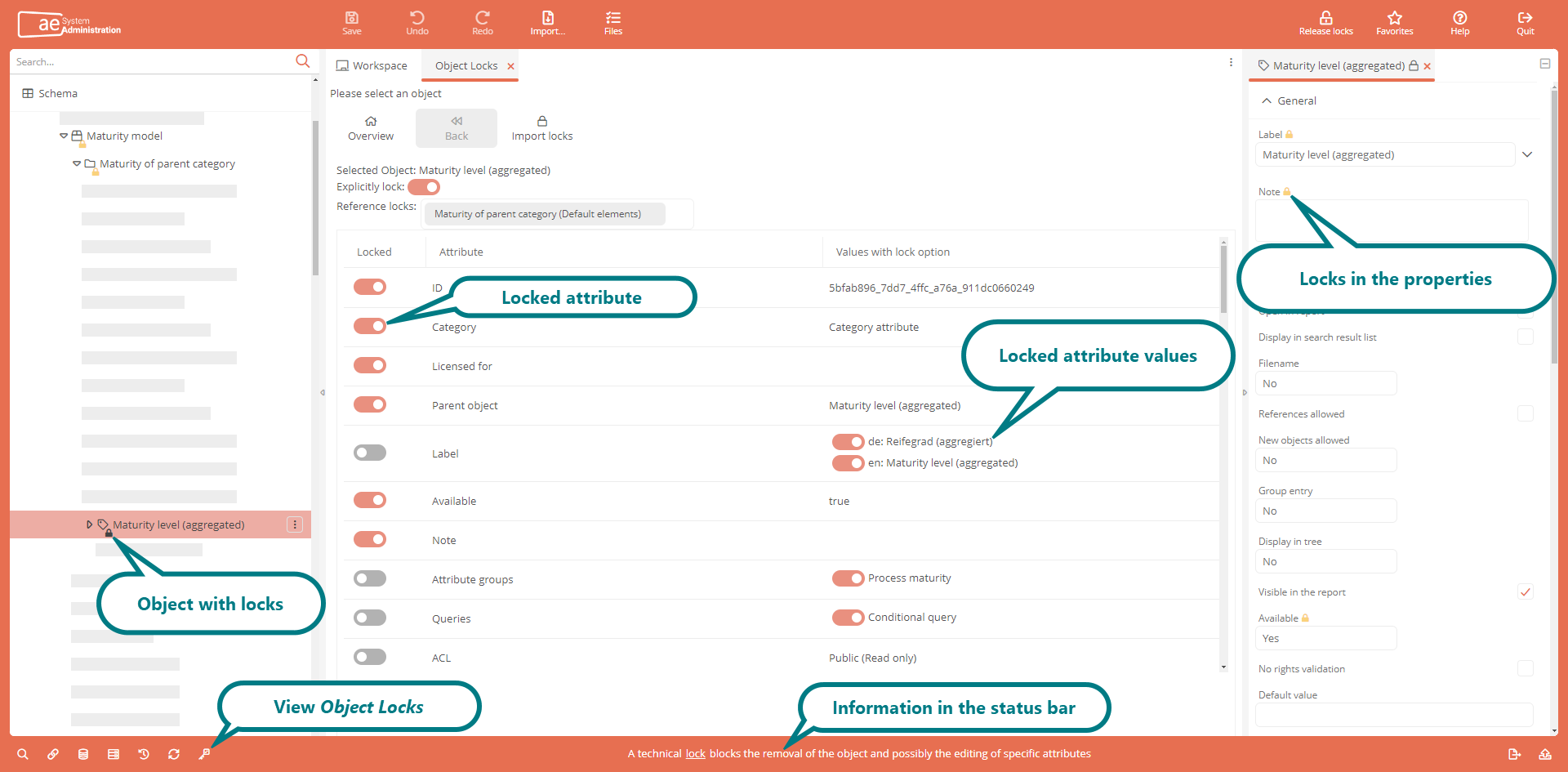Objects protected by default
In Aeneis, a locking function is used on individual objects, categories or attributes, which makes it possible to protect the Aeneis software standard and at the same time ensure the update capability and future migration of databases.
These default locks, which are essential for the proper functioning of Aeneis, are set and managed by the Intellior product management. This means that you, our partners and consultants cannot make any changes to the locks. However, you can view the locks that have been set in the Object Locks.
Example: In order to deliver the software, future updates and all improvements uniformly, we lock Portal elements, such as the reports included in the delivery state.
What you get from our protected objects:
-
Aeneis software standards, which are central to future features and improvements of Aeneis, are ensured.
-
Thanks to standardization at strategically important areas, you benefit from new developments without having to forego the usual flexibility of Aeneis.
-
The locks are designed to protect the core functions of Aeneis. Nevertheless, you have the freedom to make your own adjustments.
Scope of the default locks
The default locks have been set either on the entire object or on individual attributes.
General protection of the object
The entire object and its attributes are protected against changes. You cannot delete this object or change its attribute values.
Specific protection of attributes
Individual attributes of the object have been protected. In the case of multi-value or multi-language attributes, it is also possible that individual values are protected against changes.
Example: Due to a default lock on an object, you cannot change the German and English names. However, you may change the name of this object in other model languages, such as French.

